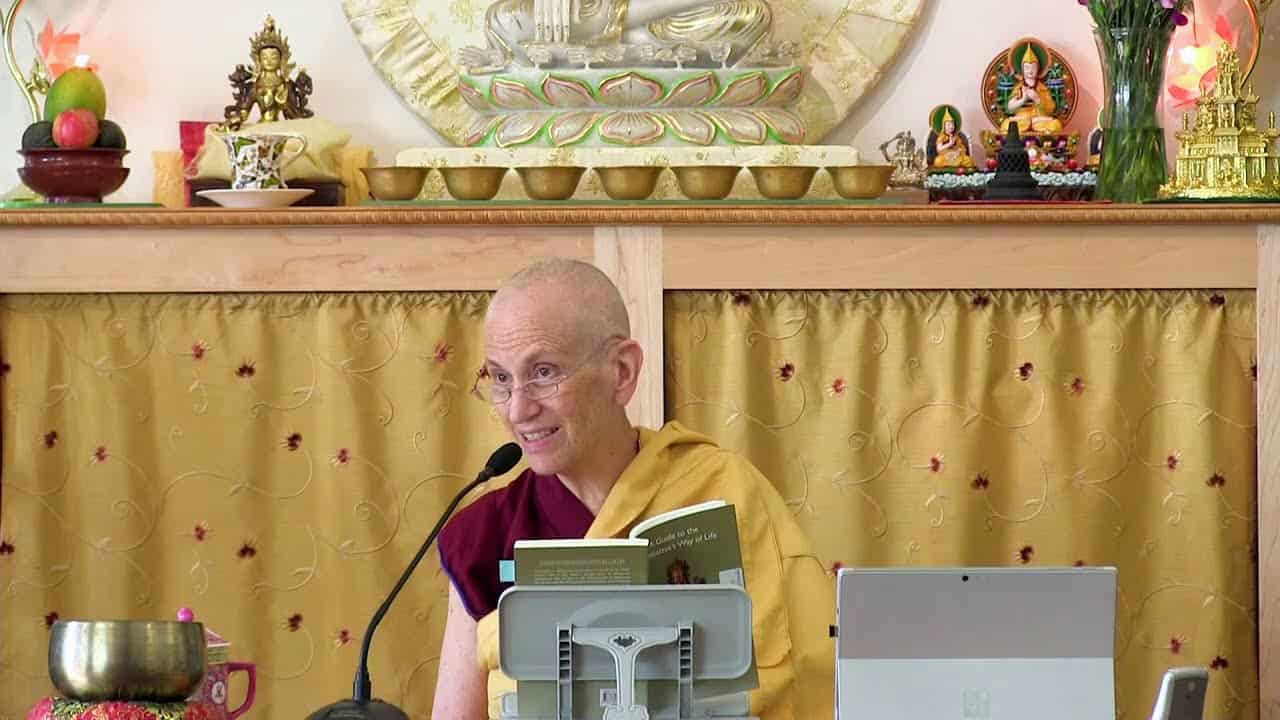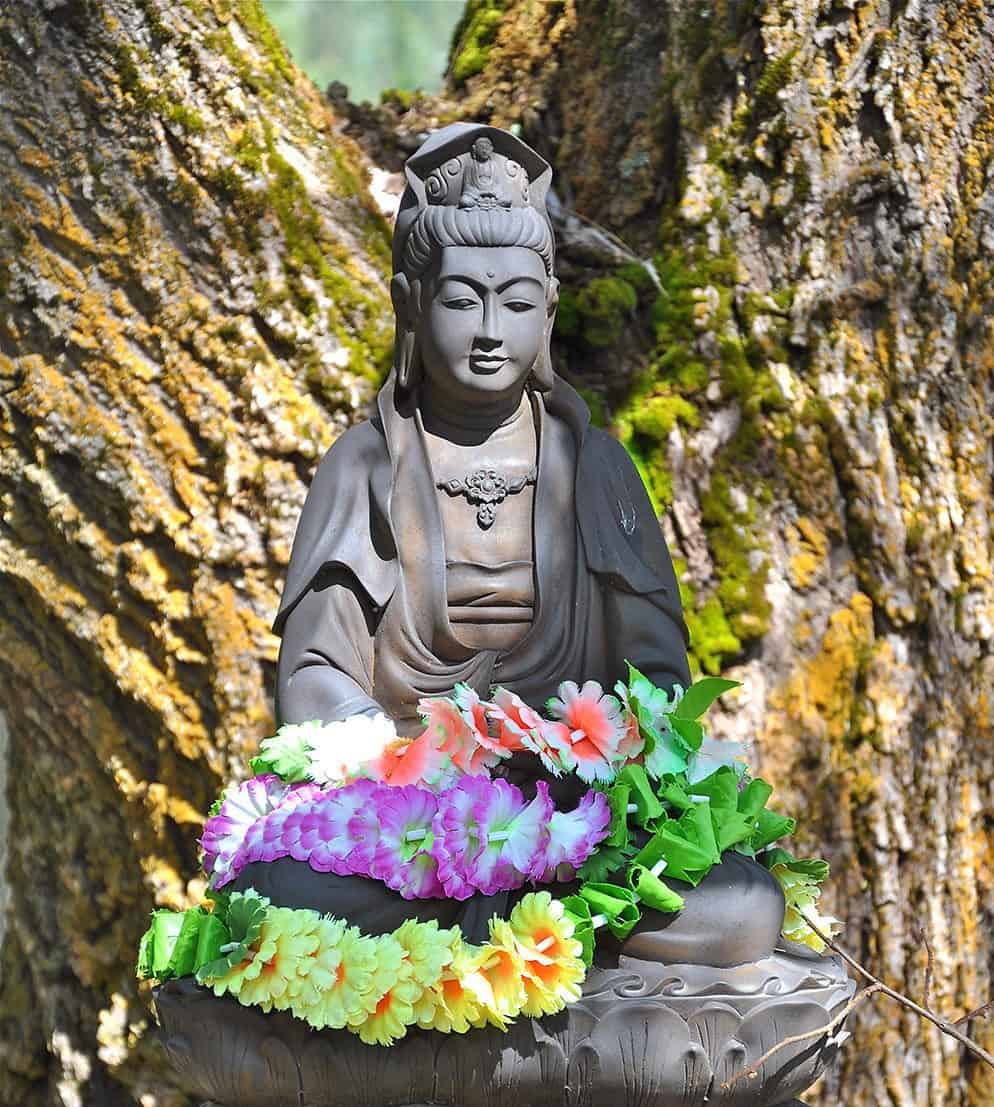Three kinds of karmic result
61 The Foundation of Buddhist Practice
Part of an ongoing series of teachings (retreat and Friday) based on the book The Foundation of Buddhist Practice, second volume in “The Library of Wisdom and Compassion” series by His Holiness the Dalai Lama and Venerable Thubten Chodron.
- Discussion of responses for specific ethical issues
- Results of our actions in the long term
- Maturation result or ripening result
- Four factors required for a maturation result
- General causes for rebirths in six realms
- How we respond to our experience, we create karma
- Result similar to the action and to the behavior
- Environmental results
- Details of three types of results for ten destructive actions
The Foundation of Buddhist Practice 61: Three Kinds of Karmic Result (download)
Contemplation points
- Consider that we have to learn and study the teachings, and then be flexible, understanding that how we (and others) apply the Dharma from one situation to the next can be very different. How can understanding this help you to have a more open heart towards yourself, others, and the experiences you encounter?
- Venerable said we’re so concerned about having enough money when we’re old and having the most pleasure now, we don’t tend to think about the kind of person we’re going to be if we do the actions we do and don’t train our mind? Spend some time with that now. Are there actions you are doing that will lead to suffering results in the future (whether in this life or future lives)? What kind of person DO you want to be and what actions can you do now to bring about those results?
- Consider: Why is it we speak more horribly to the people we care about than to strangers? What have been some results you’ve experienced from expectations you’ve put on those you’re close to? What is the ignorance in your own mind that underlies these expectations and leads to your negative actions?
- What are the three (sometimes described as four) types of karmic results? Make examples of each from your own life. Three of the four of them bring about results that are neutral. Which is different and why?
- Spend some times thinking about the different results in the chart on pages 272-273, noting how they resemble the action done. Does thinking about these results make you want to change the causes you are creating? Pick one or two that you can start working to overcome today.
Venerable Thubten Chodron
Venerable Chodron emphasizes the practical application of Buddha’s teachings in our daily lives and is especially skilled at explaining them in ways easily understood and practiced by Westerners. She is well known for her warm, humorous, and lucid teachings. She was ordained as a Buddhist nun in 1977 by Kyabje Ling Rinpoche in Dharamsala, India, and in 1986 she received bhikshuni (full) ordination in Taiwan. Read her full bio.


